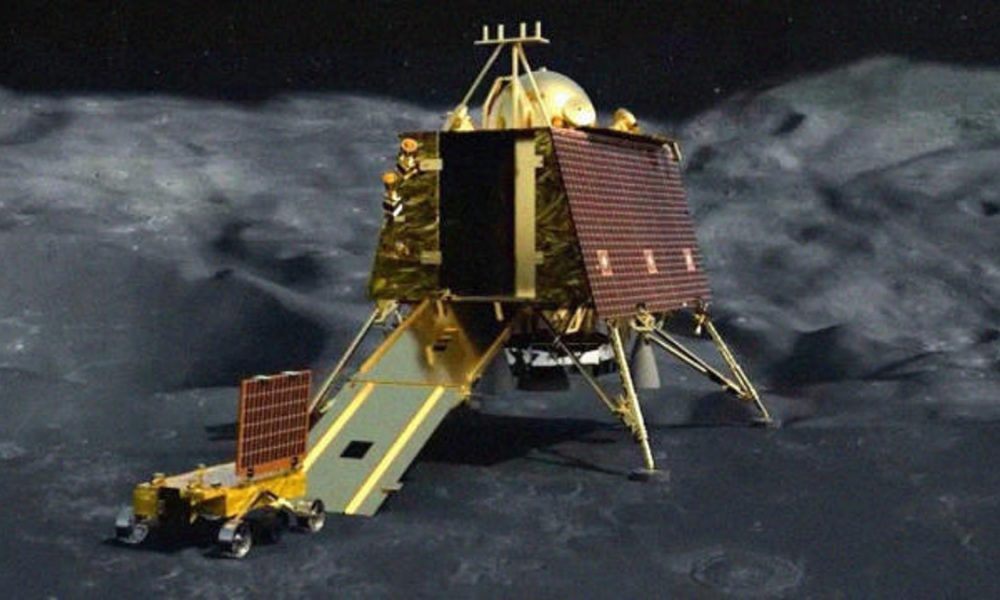
Gaganyaan mission
New Delhi: 140 crore Indians have kept their fingers crossed as D-day approaches for the much-awaited soft landing of the country’s third moon mission — Chandrayaan-3. People across the country are praying to God for a successful ISRO mission. The scheduled timing for the soft landing of Chandrayaan-3 on the moon’s south pole on August 23, 2023 (Wednesday), is around 18:04 IST, with the powered descent of Vikram lander expected at 1745 IST.
The live telecast of the landing operations at Mission Operation Complex (MOX) will begin at 1720 IST on Wednesday. Live actions of landing will be available on the ISRO website, its YouTube channel, Facebook, and public broadcaster DD National TV from 17:27 IST on Aug 23, 2023.
Chandrayaan-3 Mission:
The mission is on schedule.
Systems are undergoing regular checks.
Smooth sailing is continuing.The Mission Operations Complex (MOX) is buzzed with energy & excitement!
The live telecast of the landing operations at MOX/ISTRAC begins at 17:20 Hrs. IST… pic.twitter.com/Ucfg9HAvrY
— ISRO (@isro) August 22, 2023
In its latest update on Chandrayaan-3 soft landing, ISRO has said the mission is on schedule and systems are undergoing regular checks. It also released a series of up-close images of the moon. These images assist the lander module in determining its position (latitude and longitude) by matching them against an onboard moon reference map.
This mission, if it turns out to be fruitful, will make India the only country to have marked its presence on the lunar south pole which is considered to be difficult for its rough and harsh conditions, and fourth – after the US, China, and Russia – to have successfully landed on the moon’s surface.
Historically, spacecraft missions to the Moon have primarily targeted the equatorial region due to its favorable terrain and operating conditions. However, the lunar south pole presents a vastly different and more challenging terrain compared to the equatorial region. With all eyes on the attempted Chandrayaan-3 soft landing, more so after Russia’s Luna-25 failed recently, let us look at the sequence of India’s mission since its lift-off 41 days ago.
The spacecraft was launched from the Satish Dhawan Space Centre in Andhra Pradesh’s Sriharikota on July 14. A GSLV Mark 3 (LVM 3) heavy-lift launch vehicle was used for the launch of the spacecraft that was placed in the lunar orbit on August 5 and since then it has been through a series of orbital maneuvers been lowered closer to the moon’s surface.
Ever since the July 14 launch, ISRO has been maintaining that the health of the spacecraft remains “normal”.
On August 5, Chandrayaan-3 was successfully inserted into the lunar orbit with multiple key maneuvers thereafter. Then on August 17, the mission marked another giant leap in its lunar quest as the ‘Vikram’ lander module of the spacecraft successfully separated from the propulsion module on Thursday. The Chandrayaan-3 mission’s lander is named after Vikram Sarabhai (1919–1971), who is widely regarded as the father of the Indian space program.
Then the deboosting of the Lander module was undertaken in two phases. Deboosting is the process of slowing down to position itself in an orbit where the orbit’s closest point to the Moon is. The stated objectives of Chandrayaan-3, India’s third lunar mission, are safe and soft landing on the lunar surface, rover moving on the moon’s surface, and in-situ scientific experiments. The approved cost of Chandrayaan-3 is Rs 250 crores (excluding launch vehicle cost).
Chandrayaan-3’s development phase commenced in January 2020, with the launch planned sometime in 2021. However, the Covid-19 pandemic brought an unforeseen delay to the mission’s progress. Astro-scientists say that the partially successful Chandrayaan-2 mission will help the Chandrayaan-3 mission, as the former had mapped the moon’s surface to perfection, and added those maps could now be used for soft landing.
Speaking to ANI, astronomer Priya Hasan said the previous lunar mission – Chandrayaan-2 – has helped the ongoing mission and explained how the orbiter of the Chandrayaan-2, which is still orbiting around the moon, is helping the crucial part of the Chandrayaan-3 mission. Chandrayaan-2 mission was only “partially successful” since the lander lost contact after a hard landing, but the ISRO earlier this week successfully established two-way communication between the Chandrayaan-3 lander module and the still orbiting Chandrayaan-2 orbiter.




